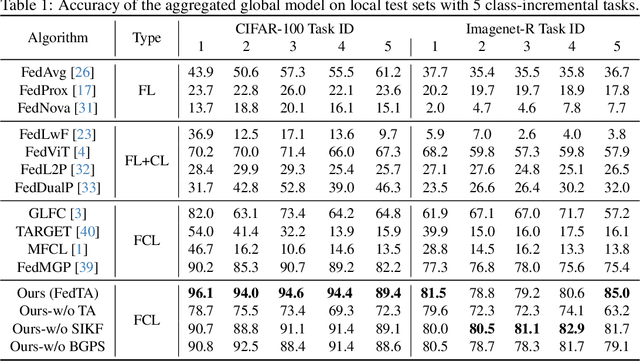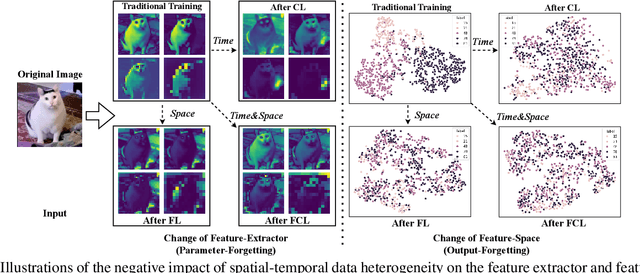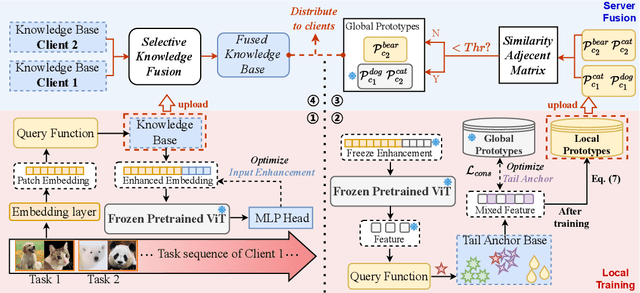Addressing Spatial-Temporal Data Heterogeneity in Federated Continual Learning via Tail Anchor
Paper and Code
Dec 24, 2024



Federated continual learning (FCL) allows each client to continually update its knowledge from task streams, enhancing the applicability of federated learning in real-world scenarios. However, FCL needs to address not only spatial data heterogeneity between clients but also temporal data heterogeneity between tasks. In this paper, empirical experiments demonstrate that such input-level heterogeneity significantly affects the model's internal parameters and outputs, leading to severe spatial-temporal catastrophic forgetting of local and previous knowledge. To this end, we propose Federated Tail Anchor (FedTA) to mix trainable Tail Anchor with the frozen output features to adjust their position in the feature space, thereby overcoming parameter-forgetting and output-forgetting. Moreover, three novel components are also included in FedTA: Input Enhancement for improving the performance of pre-trained models on downstream tasks; Selective Input Knowledge Fusion for fusion of heterogeneous local knowledge on the server side; and Best Global Prototype Selection for finding the best anchor point for each class in the feature space. Extensive experiments demonstrate that FedTA not only outperforms existing FCL methods but also effectively preserves the relative positions of features, remaining unaffected by spatial and temporal changes.
 Add to Chrome
Add to Chrome Add to Firefox
Add to Firefox Add to Edge
Add to Edge